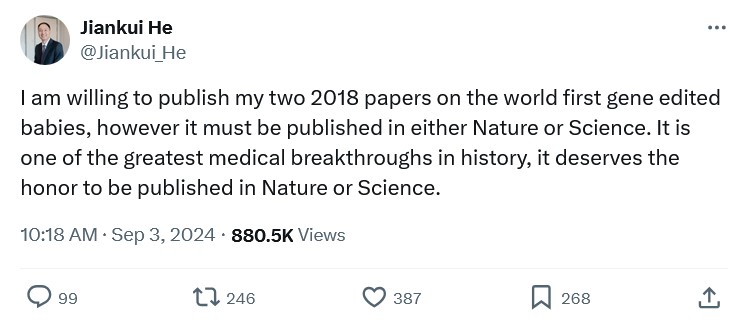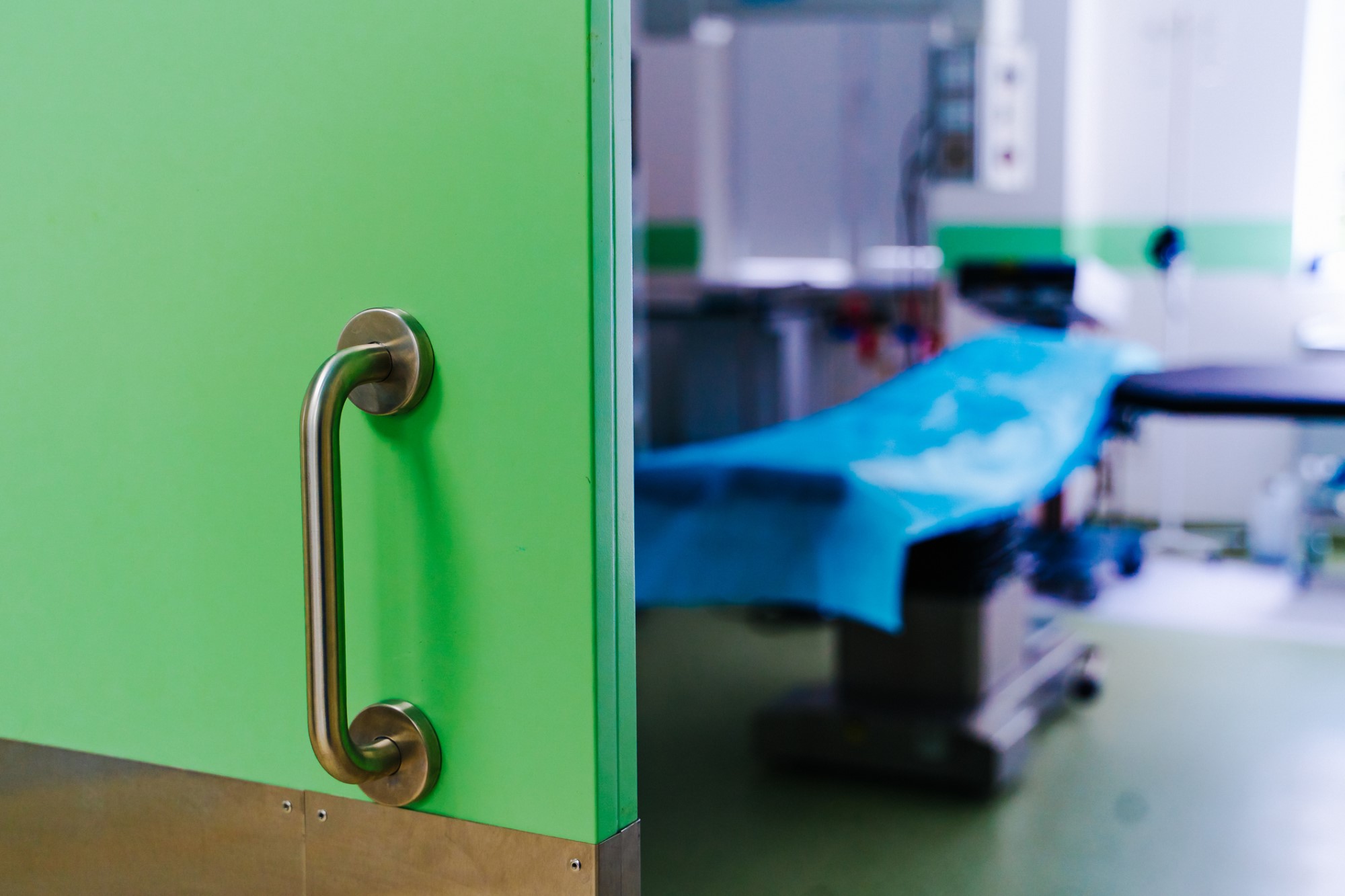CRISPR Ethics and the Dilemma of Scientific Progress

Earlier this month, He Jiankui tweeted the following:
For the uninitiated, He, using the gene editing technology CRISPR-Cas9, edited the DNA of embryos for seven couples, with one of these embryos eventually resulting in the birth of twins named Lulu and Nana. His (supposed) goal was to engineer HIV resistance by removing part of a receptor on white blood cells to which the virus is drawn. In other words, he wanted to make it less likely that the twins could be infected with HIV in the future.
After revealing his work, He received widespread condemnation. The Southern University of Science and Technology in Shenzhen, China, where He worked, revoked his contract and terminated all his teaching and research duties. And Julian Savulescu, one of the world’s most prominent bioethicists, said of He’s work, “If true, this experiment is monstrous… This experiment exposes healthy normal children to risks of gene editing for no real necessary benefit. In many other places in the world, this would be illegal punishable by imprisonment.” And indeed, this is what happened, with He being sentenced to 3 years in prison for his actions.
In 2023, roughly a year after his release, He admitted he moved too fast in editing the embryos, and while not acknowledging he did anything wrong, he demonstrated a degree of personal reflection about the impact of his actions. However, more recently, that sense of reflection appears to have faded. Not only is he saying he will release the research that led to the twins’ birth — on the condition that those papers are published in either of the two top-ranking science journals — but in April, He said he was proud of his actions.
Now, undoubtedly, He’s research broke new scientific ground. But it was also ethically unforgivable and highly illegal. Nevertheless, one could argue that, despite its ethically and legally transgressive nature, He’s work might lay the foundation for future advancements that may save and improve lives. After all, CRISPR-Cas9 has been touted as a tool that could revolutionize health. So, with He suggesting he might make his work available, we find ourselves questioning whether we overlook his “monstrous” actions for the potential good they might bring.
This type of conundrum is nothing new. The knowledge used to help inform today’s medical practice often emerges from less-than-reputable sources. Indeed, some of our most basic understanding of anatomy and physiology was born from horrors upon which still make the world shudder. As the BBC notes when reflecting on the 1940s/50s Operation Paperclip:
Allied forces also snapped up other Nazi innovations. Nerve agents such as Tabun and Sarin (which would fuel the development of new insecticides as well as weapons of mass destruction), the antimalarial chloroquine, methadone and methamphetamines, as well as medical research into hypothermia, hypoxia, dehydration and more, were all generated on the back of human experiments in concentration camps.
What was endured during the regime was beyond horrific, but the knowledge those scientists created has changed the world and had both negative and positive impacts. The phenomenon of knowledge, some of it invaluable, coming from the most terrible acts and actors, has been spotlighted in the series The Human Subject. Here, Drs. Adam Rutherford and Julia Shaw explore the connections between modern medicine and its terrible beginnings (not all historical).
What is being asked of us then, with He proposing to release his work into a peer-reviewed journal and the enormous good that might result from it, is if we can overlook or accept the immoral and illegal way the breakthrough was made (to use a cliché) for the greater good.
To be clear, however, this isn’t a case of a cost-benefit analysis, at least not in a straightforward way. The cost — the harm that might come from the experiment — has already been endured. It’s already happened. So, we’re not balancing doing an action against not doing an action. Instead, we need to consider whether the practical benefits of using this knowledge are so tremendous that it causes us to abandon our principles. While He’s actions might have been monstrous, though he may have shortened Lulu and Nana’s lives and his genetic manipulation might have had unforeseen off-target effects, can we overlook these facts given the impact He’s work might have in helping people in the future?
Unfortunately, I don’t have a good answer for you (sorry if you were expecting one).
On the one hand, if the proponents of CRISPR are to be believed, then the enormous benefits that might come from a better understanding of genetic alteration cannot be passed up, regardless of how that knowledge came into being. Countless debilitating genetic diseases, from sickle cell anaemia to cystic fibrosis, could be effectively tackled through CRISPR’s application. Thus, it doesn’t seem reasonable to turn away from such a possibility because we don’t like how we obtain such knowledge.
On the other hand, however, I’m sure many would feel an intense moral distaste for using such knowledge when we know how it has, at its very foundation, been tainted. How we come to know something is just as important as the thing itself. And while good may come from He’s work, it seems nothing more than opportunistic to opt for the outcome that might benefit us now and in the future and write off Lulu and Nana as a price worth paying.
Ultimately, then, I’m hesitant to give He a pass. He knowingly breached all legal and ethical conventions, and to say that this matters less than the utility of what he uncovered sends a signal to him and others that success matters more than what’s right.





